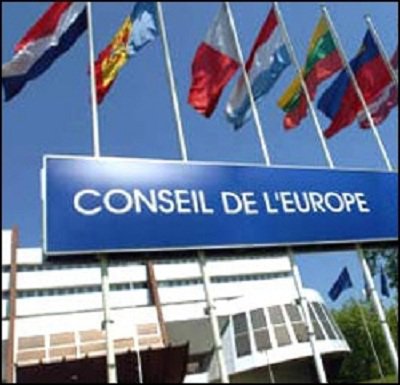
The question “Which system of values will be chosen by a young man in entering the life of society” has always been important, since it is values that to a considerable extent determine human activity. Despite the growing role of new means of communication in the formation of a system of values, a serious impact is still made on this process by parents, teachers and friends of a young man. They show a living example of either an attractive or repulsive way of life.
The ability to live a free life while respecting the freedom of another is one of the common values in European societies. From the Christian point of view, the space of inner freedom is boundless because the human soul is a whole universe. Nobody can restrict this freedom, for it is an inalienable gift of the Creator. However, even in a democratic society each has a concrete enough space for personal freedom limited by freedom of the other and determined by law. If this law-determined space of freedom is violated, the state and society apply appropriate sanctions against the violators.
In the world of electronic communication, there is a well-known notion of trolling. Wikipedia defines it as ‘a form of virtual communication with violations of the ethics of network interaction expressed in the manifestation of various forms of aggressive, humiliating and offensive behavior’. A person engaged in trolling invades the other’s space of freedom in order to make as much damage as possible to people with opposite views.
Unfortunately, we have increasingly become witnesses to trolling used in real life in the form of various performances, public and other actions with regard to religious communities. Such events have already taken place in France, Italy, Spain, Norway, Russia, Germany, Finland and other countries.
Participating in them is a small part of the youth, but such actions are committed with as much offensive and humiliating effect as possible. The point is not the establishment of mass media, organizations or institutions which are anti-religious or critical of religious organizations or religious teachings. This kind of the realization of freedom of conscience has long been present in Europe. There is a new wave of what precisely is invasion into the space of believers’ freedom protected by laws on freedom of conscience. The objects of such violation include religious symbols installed in public places, buildings of worship, religious cemeteries and holy places.
For many religious citizens in European countries, religious life is integral to their individual dignity. When the private space of believers is violated in order to voice words or commit actions in it which insult or humiliate believers’ dignity, it is no longer freedom of speech or self-expression. It is an elementary violation of the rights of believers.
I believe such actions create an atmosphere of isolation and stigmatization of a certain group of people. It is well known from examples of the atheistic past in former communist countries as well as nazi and fascist regimes. Let us not forget that these regimes grew ripe with the connivance of a silent majority, developing from small groups of fanatics who denied order and the dignity of others. We know from the Soviet history that after crosses are sawn down and synagogues and mosques are defiled, the next to be sawn down are people.
What is the problem then? In March 2012 the hacker group Anonymous crashed the Vatican website, leaving a message: “Anonymous decided today to besiege your site in response to the doctrine, to the liturgies, to the absurd and anachronistic concepts that your for-profit organization spreads around the world.” We see today a serious clash between different attitudes to values on which the public life should be built – a clash as to what can and what cannot be permitted. Believers have their own view on this score and sometimes it collides with the stance of some other groups in society. These few but consolidated groups seek to discredit religious communities in order to push through their own point of view in the public opinion and to declare it a new norm of public and private life.
Today’s European societies offer various groups enough freedom to live their own way of life. Throughout Europe, there are many clubs and societies of all kinds, and the communication resources open up ample opportunities for realizing the individual freedom of association, self-expression and beliefs. This has proved not enough for some, however. Some groups wish that all society should live by their ideas and ideals. They have chosen the aggressive strategy of provocation, discredit and lies in order to perpetrate a coup of values in society. I admit that religious communities too would like to share their values with as many people as possible, but they have chosen the peaceful way of persuasion and demonstration of the positive experience. Their opponents take it as a weakness and use aggression to discredit the values held by believers.
In European countries, there are some laws which protect freedom and ensure the legal equality of various religious and non-religious groups. Today there is not a single law which would impose on people a particular faith or worldview or coerce them to accept it. It is a sign showing that in European countries there is a high level of guarantees of religious freedom. However, under the pretext of freedom of speech and assembly the freedom of believers is violated today inside their private space guaranteed to them by law. This space is in danger and it should be protected. I call upon the Council of Europe, its member states and public to protect legally and to ensure reliably the freedom of believing people.
